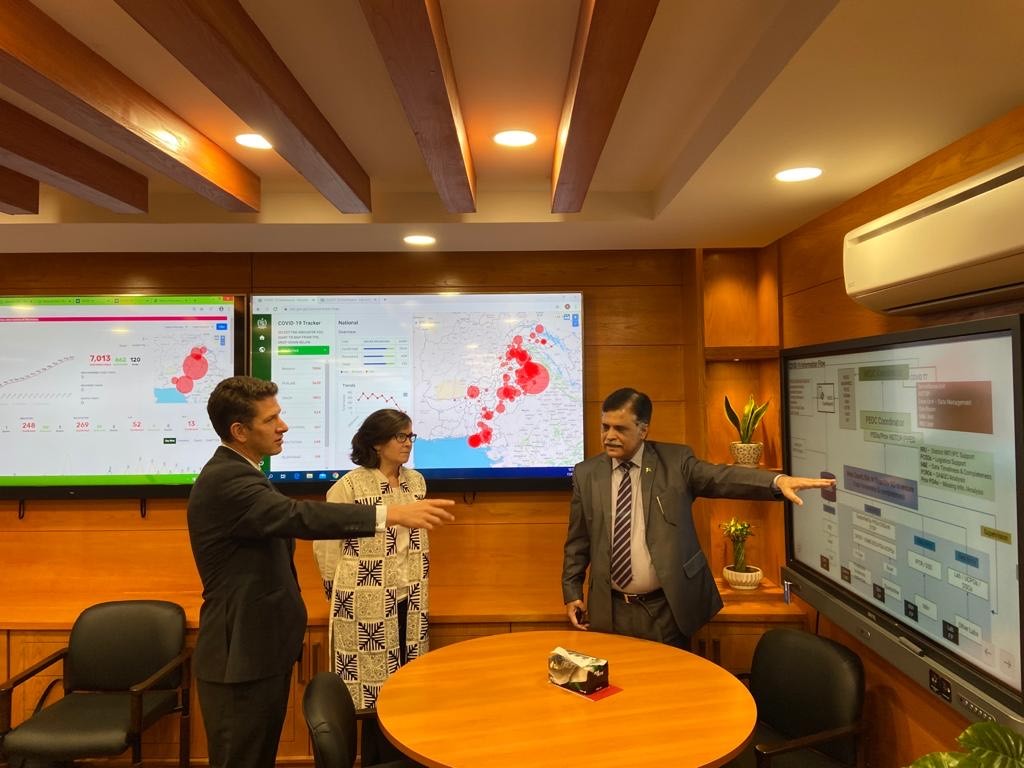Jumping into the bandwagon of analysts who are gauging the economic impact of the coronavirus is a daunting task, for the probability of sounding repetitive is not insignificant. But we are all currently in a lockdown that has restricted our mobility in ways that we had never imagined. Our medical teams, despite their best efforts remain severely understaffed and under-resourced in a climate that has challenged even the best of the medical facilities around the globe. And here we stand, at the cusp of an economic recession like never before, that threatens to eat away at the very fabric of economic health that we have just been able to regain. This is the novel corona virus we are facing today.
The tradeoff between economic health and individual health is a notoriously complex conundrum, for there is no one correct answer to it. The idealist will always intercede for morality but rationalism, and hear me out, as we all prepare to wage a war against the invisible enemy that continues to wreak havoc amongst us, a significant dose of rationalism is exactly what we need. At the core of the problem lies just the one thing that that can make or break us. Money.
Pakistan needs money to be able to sustain itself, and it goes without saying that this lockdown remains no friend to us. Our healthcare needs money to meet the increasing demands of services we desperately need, from increasing testing per capita to developing pool tests to identify corona virus victims in non-cluster areas, and promoting antibody tests to detect immunity to the illness. The government needs money to stabilize and support businesses, and in particular the small and medium size enterprises which are already severely constrained, and stand at the risk of defaulting as they continue to pay overheads. Laying-off daily wage, lowly skilled and the more vulnerable workers is another issue. As the SMEs continue to battle fears of insolvency and liquidity crunches, increasing unemployment will only exacerbate a national crisis, for unemployment benefits amongst other forms of fiscal and monetary stimuli to invigorate the economy will have to be accounted for. A more easily ignored but equally important aspect is the potential increase in crime rates. The streets of Karachi are no stranger to this; having been victims of kidnappings, roadside muggings, robberies and extortion, and increasing layoffs will eventually force more people into this lifestyle, willingly or unwillingly.
Probably the least acknowledged and the most critical of all points remains to be the decrease in market shares that Pakistani businesses and exporters face in the international markets as productions are halted, and delays in deliveries are incurred. As China started its own battle against the coronavirus, and started seeing breakdowns in its supply chains, textile producers and exporters in Pakistan were amongst the first to rejoice. The textile industry, which makes up about 55% of Pakistan’s exports and roughly contributes to 8.5% of its total GDP saw a sudden increase in purchase orders. Industrialists were working at full production-capacity, and there were projections that Pakistan would comfortably meet and may even exceed its national export target of $24-25 billion for the FY 2020. However, these celebrations were short-lived for as we shut ourselves down under the existing lockdown, and while China walks down on its own path to recovery, Pakistan is now finding out that not only has it lost out on the new potential clientele, but that the loyalty of its existing clientele is also being tested as more of them are walking out towards suppliers who are more forthcoming under the circumstances.
The fact remains that no economy is sustainable under a lockdown. Moreover, the World Bank’s most recent predictions that Pakistan is not only sipping into a severe recession, but that economic growth will slide to a mere 1.1%, while budget deficits will widen by a further
2% only highlight a need for serious action to be undertaken on an immediate level. This does not, on any account, mean that the curfew should be uplifted, for Pakistan is not capable of surviving an existential healthcare crisis on top of a burgeoning economic recession.
What it means, is that the government needs to give serious thought to strategizing on how to keep the economy functional under the existing lockdown. For instance, restarting industries that have the potential bring in foreign revenue in phases is a viable starting point. Textiles again, is a strategic place to begin from. Not only is its contribution to the GDP measurable, but as the world continues to battle against the corona virus pandemic, hospitals have an upsurging demand for towels, bed linens, ordinary garments and clothing while home-based online shoppers have resorted to browsing for and purchasing clothes from online forums. These are areas which remain to be Pakistan’s forte, and losing this market share to its competitors would be an irrecoverable loss for the country.
If textile become part of phase 1, sectors supporting textiles can re-open under phase 2 and leather which follows from this sector can reopen under phase three. As sectors and industries reopen, it becomes the responsibility of the government to issue guidelines for safe and ethical modes of production. Essential healthcare checks for the relevant firms become imperative such as doing temperature checks on each employee who enters the facility, giving them hand sanitizers at frequent intervals, enforcing all individuals to wear face masks and gloves, and ensuring all hygiene standards are being thoroughly maintained. Firms which are sanctioned to operate under the circumstances, will have to undergo a deep-cleansing before calling employees in, and once functional, may have to operate under below full efficiency levels to ensure physical distance between employees. Concerned labour departments can even be given the authority to conduct uninformed checks to ensure compliance, and to impose penalties in accordance to accounts of violations of these standards.
These are unprecedented times and unprecedented times do call for unprecedented measures. Afterall, the corona virus is a novel virus and a pandemic for a reason. Savings lives will only take us so far, for an economic crisis which reeks of inflation, massive unemployment, increased debt per capita, and lowered disposable incomes amongst other factors will do no favours for the lives we save. Which is why it must be reiterated, for a lockdown to be effective, we must use this time to devise a strategy that paves our way forward in a manner that is economically sustainable and will limit contagion. The need of the hour is to act now, to prioritize what is important at the present, and to understand how the actions in our present define our futures, both in the short-term and the long-term.




















